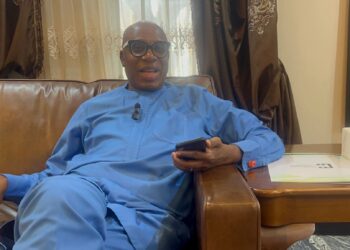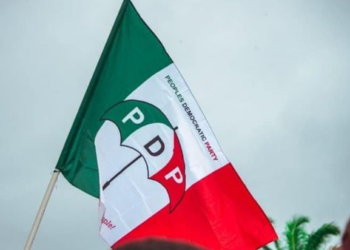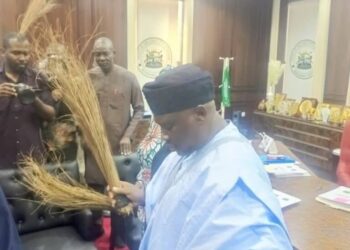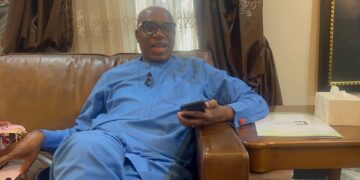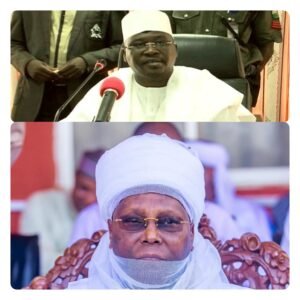
Yola, Nigeria – June 25, 2025
The Adamawa State Government has formally withdrawn the revered traditional title of Waziri Adamawa from former Vice President Atiku Abubakar, citing a new indigeneship policy that disqualifies individuals outside specific districts from holding traditional council titles.
The decision, contained in a circular dated June 20, 2025, was issued by the Permanent Secretary of the Department of Chieftaincy Affairs. The new directive affects several titleholders who do not originate from the districts of Yola South, Yola North, Girei, Mayo-Belwa, Song, and Zumo—all designated under the Adamawa Emirate Council’s revised traditional structure.
Atiku, a native of Jada in the Ganye Chiefdom, falls outside these designated areas and is therefore no longer eligible to retain his status as Waziri Adamawa—a title he was bestowed in 2017 for his philanthropic contributions and longstanding service to the state and nation.
“This new policy was enacted to ensure that traditional council roles and kingmaker positions are preserved for indigenous sons of the specified districts within the emirate,” a senior official in the Ministry of Chieftaincy Affairs, who asked not to be named, told The Merit Newspaper. “It is part of a broader administrative reform to strengthen cultural heritage and accountability within the emirate system.”
READ ALSO:2027: Atiku, Obi, El-Rufai Launch New Party to Dethrone APC
The revocation of Atiku’s title has generated widespread public debate, with many interpreting it as a politically motivated move. Atiku, the 2023 presidential candidate of the Peoples Democratic Party (PDP), has recently been seen engaging with opposition figures, including Labour Party’s Peter Obi, former Kaduna governor Nasir El-Rufai, and Senator Aishatu Ahmed Binani—sparking speculation about an emerging political realignment ahead of the 2027 general elections.
Sources within the PDP describe the action as “provocative” and “targeted,” noting that the timing coincides with increasing political tension between Atiku and Governor Ahmadu Umaru Fintiri of Adamawa State.
“This is not just a traditional issue; it reflects deepening political cracks within the state’s power structure,” said Dr. Yakubu Alhassan, a political analyst at Modibbo Adama University. “It sends a message—not just to Atiku, but to any political figure seeking to challenge the status quo.”
READ ALSO:Chief Ibrahim Kilanko Olalowo Celebrated as a Community Pillar on His Birthday
Meanwhile, neither Atiku nor his media team has publicly responded to the development as of press time. However, supporters online have condemned the move, calling it “a desecration of tradition for political gains.”
Atiku Abubakar, a respected elder statesman and business magnate, was installed as Waziri Adamawa in 2017 by the Lamido of Adamawa, Alhaji Muhammadu Barkindo Mustapha. The title, historically reserved for senior advisors and kingmakers in the emirate, placed Atiku in a prominent cultural and political position within the state.
The revocation of such a title is rare and carries both symbolic and cultural weight in Northern Nigeria, where traditional hierarchies remain deeply respected.
As public discourse continues to evolve, all eyes are on the Adamawa Emirate Council and the state government to clarify the broader implications of the new indigeneship directive—one that may reshape the composition of traditional authority in the state for years to come.
READ ALSO:Tinubu Bows Out, Bio Takes ECOWAS Helm Amid Crisis
What the Indigeneship Policy Says
Only sons of Yola South, Yola North, Girei, Mayo-Belwa, Song, and Zumo can now hold council titles.
Affects all titleholders in the Adamawa Emirate Council outside those areas.
Aims to preserve “indigenous participation” in traditional governance structures.



